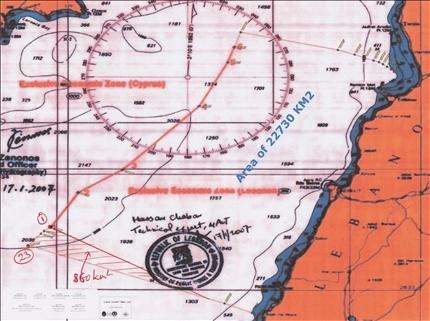Difficult negotiations between Lebanon and Israel ahead

Amid the domestic split between members of different political groups in Lebanese society, the country is preparing to start an indirect negotiation with Israel, pursuing a decades-old border dispute. After nine years of indirect discussion, both sides have agreed on a road map negotiated by the Lebanese Speaker Nabih Berri. The negotiations over the final borders are expected to begin in the week starting 14 October in the neighbouring Lebanese city of Naqoura at the headquarters of the United Nations Interim Force in Lebanon (UNIFIL) and under its auspices. The negotiation is far from being a Lebanese normalisation with Israel, nor is it a recognition of the Israeli occupation of Palestine. Lebanon signed previous agreements with Israel in 1949, 1996 and 2006 yet still considers it an enemy. However, there is a remote possibility for Lebanon to have a place among the gas-producers’ countries soon. Lebanon has indeed started down the energy path, but it has for sure a very long way to go, notwithstanding the inevitability of ‘domestic bickering’. From day one of the negotiation, Israel will try – supported by the US envoy David Schenker – to offer a false impression to the world that Lebanon is on the path of normalisation with Israel. Israel is expected to try everything to show an apparently friendly behaviour with the Lebanese delegation to embarrass President Michel Aoun and his main ally, Hezbollah. However, when it comes to respecting the Lebanese borders the Israelis are not expected to agree any time soon.
President Aoun wishes to secure an agreement that enables Lebanon to become an oil-producing country. The agreement over the Israeli-Lebanese maritime and land borders would help him to establish this legacy and boost the Lebanese financial credibility, amid the severe crisis the country is currently experiencing. However, this is a trap that he has himself walked towards by evoking his constitutional right article 52 that gives him the right to negotiate and ratify international treaties in agreement with the Prime Minister even though the Parliament must ultimately approve the treaty.
The trap consists of President Aoun being more vulnerable than Hezbollah to international intimidation, mainly by the US.US Assistant Secretary of State for Near Eastern Affairs David Schenker is expected in Beirut on Monday and will be present at the opening session. There is little doubt that the US, particularly the current administration, is looking for any “victory” (shaking hands, photos of the Lebanese and Israeli delegation, to name but a few) to support President Donald Trump’s election. Also, the US aims to help Israeli Prime Minister Benjamin Netanyahu, who is facing severe challenges and domestic difficulties. Moreover, the US will accuse Lebanon of being responsible for any rebuff during a negotiation that doesn’t give Israel the upper hand or some concessions from Lebanese waters. Lebanon requires international financial support and the World Bank loan and will be extremely vulnerable to US blackmail.
The US has invested over $10 billion to counter Hezbollah and “demonise” the organisation. Inevitably, the US has allies in Lebanon and the Lebanese are divided politically, where criticism, exchange of accusations and attacks in media and social media are the rule of the day. This kind of machine is ready to roll whenever the US needs it and to campaign against the President and his son-in-law who leads the major Christian party in Lebanon (Tayyar al Watani al Hurr – Free Patriotic Movement – FPM). He fears sanctions against himself in person and dozens more of his party.
The Lebanese Christian majority is not an anti-western group and are the only political party who supported the French President Emmanuel Macron’s initiative, unlike their allies in Amal and Hezbollah. Therefore, the west will always find its way through Hezbollah’s lines (the partners) to the advantage of Israel.
Subscribe to get access
Read more of this content when you subscribe today.
It is very unlikely that President Donald Trump, who is big on striking deals, will have an Israeli-Lebanese agreement to add to his CV before 3 November or at some later date in years to come.
 TheAltWorld
TheAltWorld 
0 thoughts on “Difficult negotiations between Lebanon and Israel ahead”